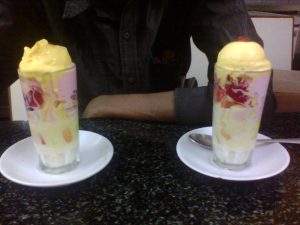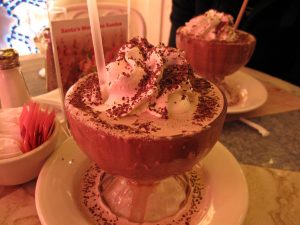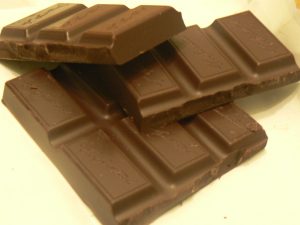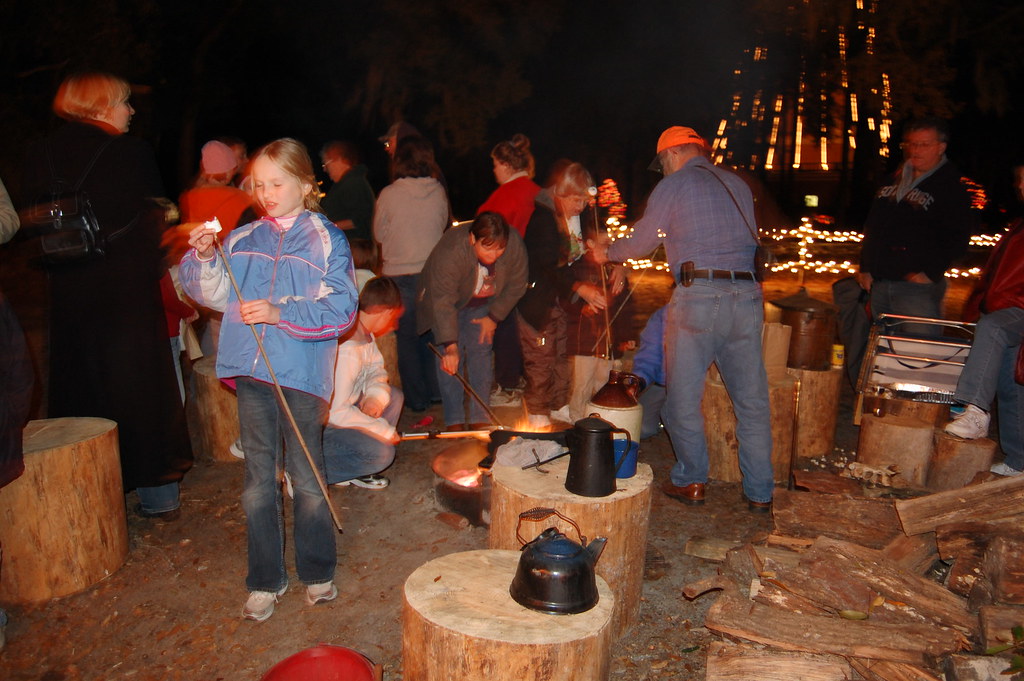Chocolate, often referred to as the “food of the gods,” holds a special place in the hearts of people around the globe. Its velvety texture and rich flavor profile enthrall the senses, making it a cherished treat across cultures. The fascinating journey of chocolate began with ancient civilizations that revered cacao, setting the foundation for a delectable legacy that has intertwined with various cultures over millennia. As we delve into the journey of chocolate through the ages, we will uncover how different regions have embraced and enriched the global chocolate tapestry with their unique contributions.
The Birthplace of Chocolate: Mesoamerica



The narrative of chocolate commences in the verdant tropics of Mesoamerica, where ancient cultures like the Mayans and Aztecs held cacao in high esteem. These civilizations recognized the profound significance of cacao, which they used both as a ceremonial beverage and a form of currency.
- Traditional Beverages: The sacred beverage Xocoatl, often spiced with vanilla and chili, was a far cry from the sweet confections we associate with chocolate today. This bitter concoction, believed to possess mystical properties, played a vital role in rituals and as a luxury for the elite.
- Ceremonial Use of Cacao: Cacao beans were integral to Mesoamerican spiritual practices. They were offered to deities, used in marriage ceremonies as a symbol of union, and even used as a form of currency, highlighting their intrinsic value in these ancient societies.
The fusion of chocolate with the cultural and spiritual ethos of Mesoamerica laid the foundation for its journey across oceans and into the heart of different civilizations.
European Embrace and Evolution
The voyage of chocolate to European shores marked the beginning of a new chapter in its rich history. Initially met with intrigue and skepticism, chocolate soon found favor among the aristocracy, setting the stage for an enduring love affair that would lead to significant culinary innovation.
- Initial Reception: When chocolate first graced the courts of Europe, its exotic allure was met with a blend of curiosity and trepidation. However, as it was sweetened with sugar and honey, it swiftly garnered the adoration of the elite, becoming a symbol of sophistication and luxury.
- Evolution into Solid Form: The evolution from a frothy beverage to a solid delicacy marked a pivotal moment in chocolate history. The invention of chocolate-processing machines in the 19th century, coupled with the discovery of milk chocolate, led to the creation of the solid chocolate bar. This innovation not only democratized chocolate, making it accessible to the masses, but also sparked a wave of culinary creativity that propelled chocolate into the heart of various European culinary traditions.
This European odyssey of chocolate epitomizes the essence of culinary fusion, showcasing how the exchange of ideas and flavors can lead to delightful innovations that continue to enchant chocolate aficionados worldwide. Through these explorations, we glean a deeper appreciation for the intricate tapestry of cultural, historical, and culinary threads that intertwine to narrate the global story of chocolate.
Chocolate in the Middle East



The narrative of chocolate in the Middle East is as rich and textured as the region’s tapestry of cultures. The Middle Eastern tradition of chocolate, although not as ancient as that of Mesoamerica, has its roots deeply embedded in the region’s culinary and trade history. Over time, the Middle East has embraced chocolate, intertwining it with its own unique culinary traditions. Modern-day manifestations of this relationship can be seen in the variety of chocolate confections that bear a distinct Middle Eastern imprint, whether through the incorporation of regional flavors like rose, pistachio, or dates, or through the crafting of chocolate confections that mirror traditional Middle Eastern sweets.
The journey of chocolate to the Middle East is a testament to the region’s historical significance as a nexus of global trade routes. The ancient trade networks that crisscrossed the Middle East were conduits for the exchange of goods, ideas, and culinary traditions, among which chocolate found its way into the region. The influence of these historical trade routes on the chocolate narrative in the Middle East is palpable, as they facilitated the fusion of chocolate with Middle Eastern culinary traditions, enriching the global chocolate narrative with flavors and techniques characteristic of the region.
Asian Fusion: A New Frontier
Asia’s tryst with chocolate is relatively recent compared to other regions, yet it embodies a vibrant fusion of tradition and modernity. The emergence of chocolate culture in Asia, particularly in countries like Japan and China, mirrors a broader narrative of globalization and cultural exchange. Japan, with its meticulous craftsmanship and aesthetic sensibility, has embraced chocolate with a unique zeal, giving birth to innovative creations like matcha-infused chocolate that marries the bitter, earthy notes of green tea with the rich, sweetness of chocolate. This fusion not only represents a melding of flavors but also a confluence of traditional Japanese tea culture and modern chocolate confectionery.
Similarly, as chocolate culture burgeons in China, there’s a growing appreciation for high-quality chocolate and unique flavor combinations, reflecting a modern palate while paying homage to traditional Chinese culinary aesthetics.
African Cacao: The Heart of Global Production
The narrative of chocolate is incomplete without delving into the heartland of cacao production – the African continent. Dominating the global cacao production scene are nations like Côte d’Ivoire, Ghana, and Nigeria, each contributing significantly to the world’s cacao supply. The lush, fertile lands of these regions provide a nurturing cradle for cacao trees, whose beans are the rudimentary essence of the delightful chocolate savored globally. This central role places Africa at a crucial juncture in the global chocolate supply chain, a position laden with both opportunities and challenges.
The economic impact of cacao production in these regions is substantial. For many communities, cacao farming is the linchpin of their livelihoods, a source of sustenance and economic stability. The ripple effects of the cacao economy permeate various sectors, contributing to the overall economic dynamics of these nations. Yet, the boon of being a cacao-rich region comes with its set of challenges, notably the often-fluctuating global cacao prices that can significantly affect the income and livelihood of local farmers.
Culture and cacao are intertwined in a delicate dance in these African nations. The tradition of cacao farming, passed down through generations, forms an integral part of the community’s cultural heritage. The communal efforts involved in cacao farming and processing echo the strong sense of community and shared purpose that is characteristic of many African societies.
Ethical Considerations and Cultural Sensitivity
The global narrative of chocolate is evolving, with ethical considerations and cultural sensitivity becoming focal points of discussion. The movement towards ethical cacao sourcing and fair trade practices is gaining momentum, driven by a growing awareness among consumers and stakeholders about the social and environmental implications of cacao production.
The ethos of fair trade places the welfare of cacao farmers at its core, ensuring they receive fair remuneration for their labor and produce. This movement also emphasizes environmentally sustainable farming practices, striving to create a cacao industry that is economically viable, socially equitable, and environmentally sustainable.
Different cultures are embracing this movement, each addressing the sustainability and ethical concerns in the chocolate industry in their unique ways. From the artisan chocolatiers of Europe and the Americas championing direct trade and bean-to-bar practices to the emergence of fair trade cooperatives in cacao-producing nations, the landscape of ethical chocolate production is becoming a global endeavor.
Moreover, the dialogue around cultural sensitivity in chocolate marketing and representation is broadening. This conversation is fostering a greater understanding and appreciation of the diverse cultural narratives that contribute to the global chocolate story. Through this lens of ethical and cultural considerations, the world is not only savoring the rich flavors of chocolate but also engaging in a more informed and respectful dialogue about the myriad hands and hearts involved in bringing chocolate from bean to bar.
Chocolate Festivals and Celebrations Worldwide
The universal love for chocolate transcends geographical and cultural boundaries, uniting people in celebration of this delightful indulgence. Across the globe, numerous events and festivals are dedicated to the appreciation of chocolate, showcasing its multifaceted charm and the creativity it inspires.
- Eurochocolate: Held annually in Perugia, Italy, this is one of Europe’s premier chocolate festivals, attracting both artisans and enthusiasts from around the globe.
- Salon du Chocolat: Originating in Paris, this grand celebration of chocolate now graces multiple cities worldwide, offering a platform for chocolatiers to exhibit their craft.
- Chocoa: This Amsterdam-based festival delves into the finer aspects of chocolate making, right from cacao cultivation to the final gourmet products.
These events serve as a testament to the global adoration for chocolate, each festival a microcosm of the broader cultural appreciation and innovative spirit that chocolate inspires.
The Future of Chocolate: A Global Melting Pot
The global discourse around chocolate is evolving, heralding a new era where diverse influences meld to foster innovative chocolate traditions. The fusion of varied culinary ethos, technological advancements, and a growing emphasis on sustainability is reshaping the chocolate landscape.
- Innovative Flavors: The fusion of chocolate with indigenous ingredients from various regions is giving birth to a plethora of unique flavors and textures.
- Technological Advancements: Modern manufacturing and processing technologies are enabling chocolatiers to experiment with new forms and textures, pushing the boundaries of what chocolate can be.
- Sustainable Practices: The global shift towards sustainable and ethical chocolate production is influencing how chocolatiers source their cacao and produce chocolate.
Amidst these evolutions, several focal points of interest emerge that enrich the narrative of chocolate across different cultural and geographical landscapes:
- Traditional Chocolate Dishes and Products:
- Each region lends its unique touch to chocolate, creating traditional dishes and products that reflect local tastes and cultural heritage. For instance, the spicy Mexican chocolate moles or the Swiss penchant for high-quality milk chocolates.
- Notable Chocolatiers and Manufacturers:
- The global chocolate arena is adorned with notable figures and establishments, each contributing to the rich narrative of chocolate. Entities like Belgium’s Neuhaus, Switzerland’s Lindt, or France’s La Maison du Chocolat, to name a few, have left indelible marks on the chocolate industry.
- Ethical Certifications:
- As the call for ethical chocolate production grows louder, various certifications such as Fair Trade, Rainforest Alliance, or UTZ Certified are becoming emblematic of a shift towards more responsible chocolate production and consumption. Each certification has its own set of criteria, focusing on various aspects like farmer welfare, environmental sustainability, and economic equity.
The dialogue around chocolate is becoming a rich global conversation, laden with diverse perspectives, innovative approaches, and a shared love for this timeless indulgence. Through this, the future of chocolate is morphing into a global melting pot, teeming with endless possibilities and a shared anticipation for the delectable innovations yet to come.

